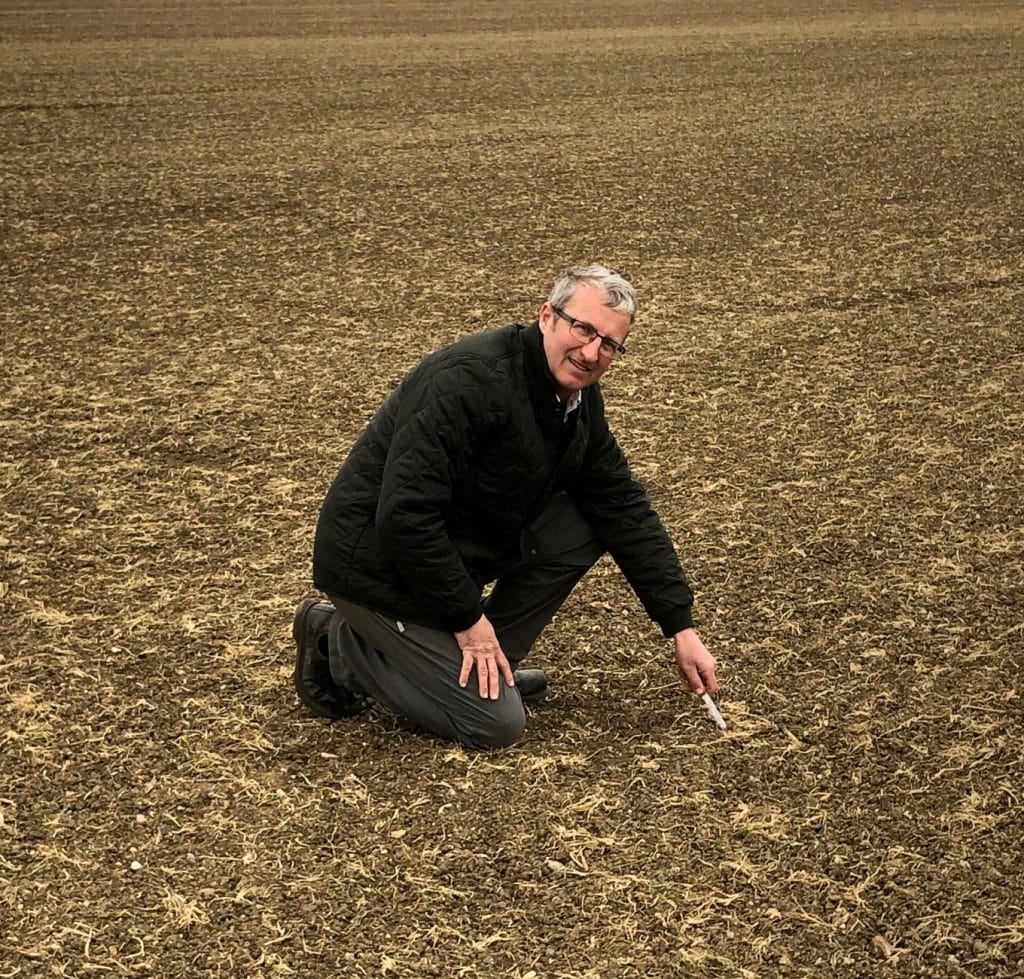Talking roots: Destroy cover crops early to avoid spring problems
With new blight genotypes and another wet spring to contend with, Hutchinsons agronomist Darryl Shailes gives his seasonal overview of potatoes and beet crops ...
About
Darryl Shailes is root crop technical manager for Hutchinsons, with a nationwide remit. He has been working in potato agronomy for more than 20 years.
It has been an interesting sea- son for beet and potatoes, dominated by the weather as usual.
This time last year, the Waveney Valley where I live was flooded already and stayed that way for most of the winter, but recently the river has been running at near summer levels – until the rain which arrived on the back of Storm Bert.
The consequences of last year’s wet winter meant that soils were very fragile at the start of the sea- son and patience was a virtue. ‘Well-sown is half-grown’ is the old saying, and it is as relevant today as it was in my grandfather’s time.
One of the complications we have to manage is cover crops in the rotation. We are learning more each year, but I think in some instances they have compromised growers’ cultivation practices, with soil being moved in the wrong conditions.
Consequently, some beet crops had very compromised soil conditions, with compaction and anaerobic soils causing lots of issues. Most crops eventually recovered, but yields were down.
The advice from the British Beet Research Organisation is to destroy cover crops at least five to six weeks in front of drilling to reduce the green bridge, however this still might not allow soils to dry sufficiently to be managed effectively in spring. This is something else to be very wary of this season, with many fields destined for spring cropping currently having very large cover crops growing in them.
Potatoes have also been affected by the wet spring conditions, and fields were switched around in some situations. Some good rain- fall after potato planting meant that most crops recovered well, with many crops needing very little irrigation throughout the season, apart from the very lightest of soils.
However, the downside of not needing to irrigate because it is raining, is that blight raises its head – the Fight Against Blight (FAB) reported 223 confirmed outbreaks across the UK.
During the bulk of the season, the FAB campaign did not detect any of the resistant strains that have been causing problems on the continent – and we thought we had another year’s grace before we saw them.
EU46 blight
However, this was not the case, as two samples of EU46 – one from Wales and one from Scotland showed up very late in the season and were shown to carry the gene that causes resistance to oxathiapiprolin but not CAAS.
So, for 2025, we will have to up the anti-resistance part of any blight control strategies and follow Fungicide Resistance Action Committee guidelines. Mancozeb being in its last season will add complications going forward.
The EU court has just overturned the EU Commission’s ruling on mancozeb and its decision to with- draw the active, saying it was based on poor science, so while it is too early to say what effect this will have on mancozeb’s approval going for- ward, it is interesting nonetheless.
Potato lifting got off to a flying start in good conditions, with some strong prices being seen early in the season.
Wireworm
However, as the season progressed, very dry weather and increasing dry matter caused some issues with bruising. Then, some heavy rain put lifting back. But so far, I have heard of very few issues in store, and crops generally yielded well with good quality apart from some wireworm.
Wireworm is one of the big issues facing the potato market and was one of the topics discussed in depth at Hutchinsons’ potato demo at Worths Farms back in July.
We had about 70 visitors ranging from growers, breeders and pack- ers, along with agronomists, look- ing at the trials covering potato cyst nematode, weed control, nutrition, soil management and cover crops. We are in the process of organising a follow-up meeting for 2025 and I hope to see some of you there.
